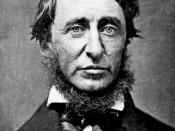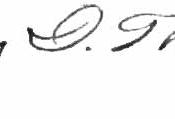What is Philosophy?
Philosophy often appears to be one long debate regarding what it means to be human, what it even means to be. Does an individual become human or is that individual only that individual? How does being differ from to be? The fundamental capacity to understand the world outside the world of the individual and his or her internal world includes the ability to interpret, characterize, and associate what seems to be singular things or, at least, singular groups of things.
Understanding the process of being as compared to the process of becoming and distinctly separate concepts for Plato, Pieper, and Thoreau and are directly related to that capacity of understanding.
For Plato (384-322 BC), the physical things of the world must, of necessity, have bodily form. They must be both visible and tangible, yet their state of being-ness is not the same thing as their essence. Plato, through his stories of Socrates and Socrates views, began the debate that has served both as an intellectual argument and an effort to understand human existence for millennia.
The 19th century philosopher and writing Henry David Thoreau (1817-62) In Walden, his account of an extended stay in the woods, he wrote that he wanted to follow nature's example, to "see if I could not learn what it had to teach, and not, when I came to die, discover that I had not lived." And, for 20th century Catholic theologian Josef Pieper (1904-97), God's role in the life of every individual and the cardinal virtues -- prudence, justice, courage, temperance, and love -- are the ways by which human beings understood truth. Pieper believed the natural world would reveal its truth if and when one had the proper attitude toward the divine. Clearly, from the most ancient of times to age...



Philosophy
Its a well compiled essay.and quiet well written as well
0 out of 0 people found this comment useful.